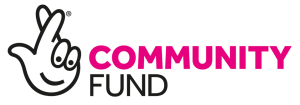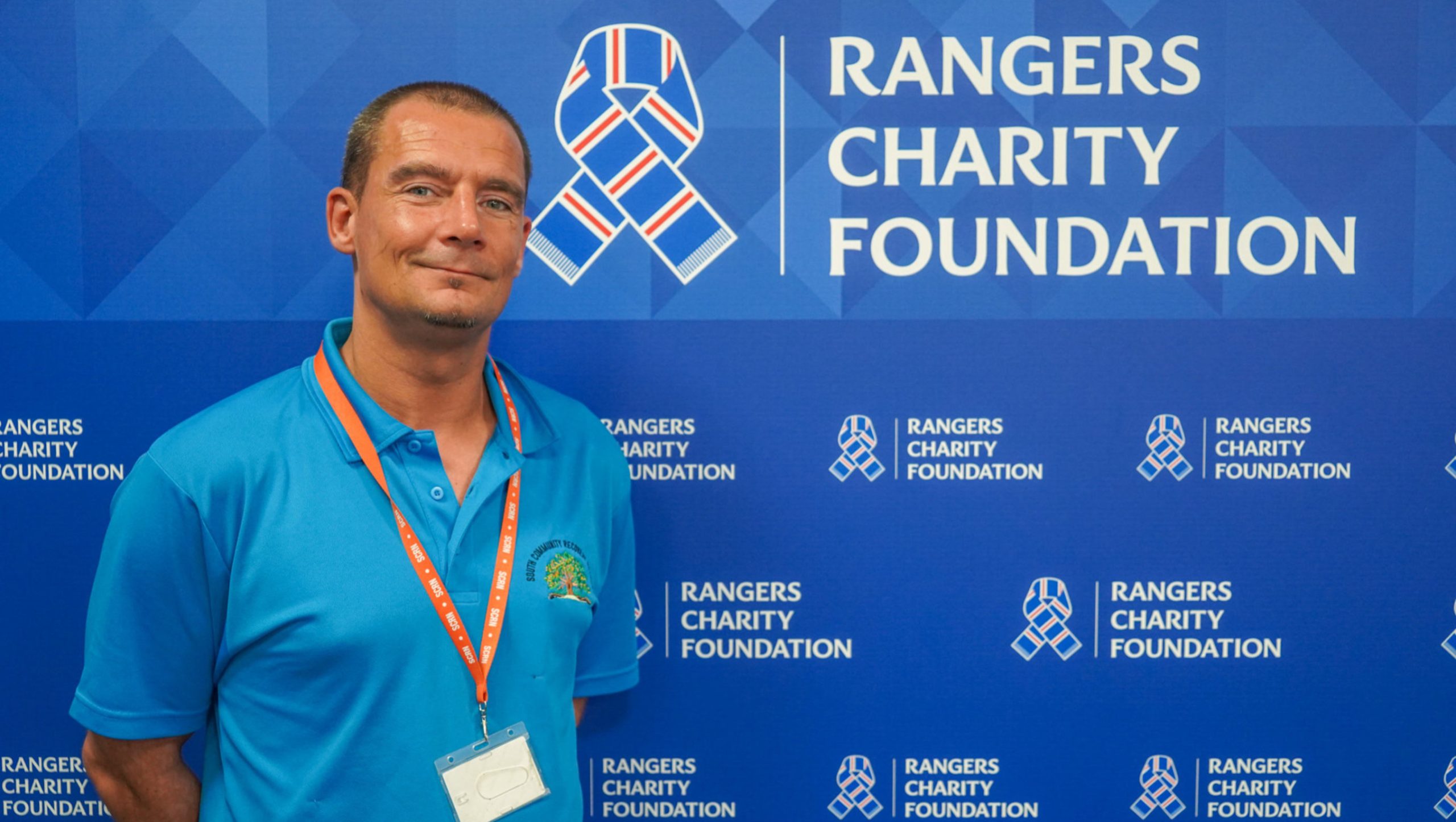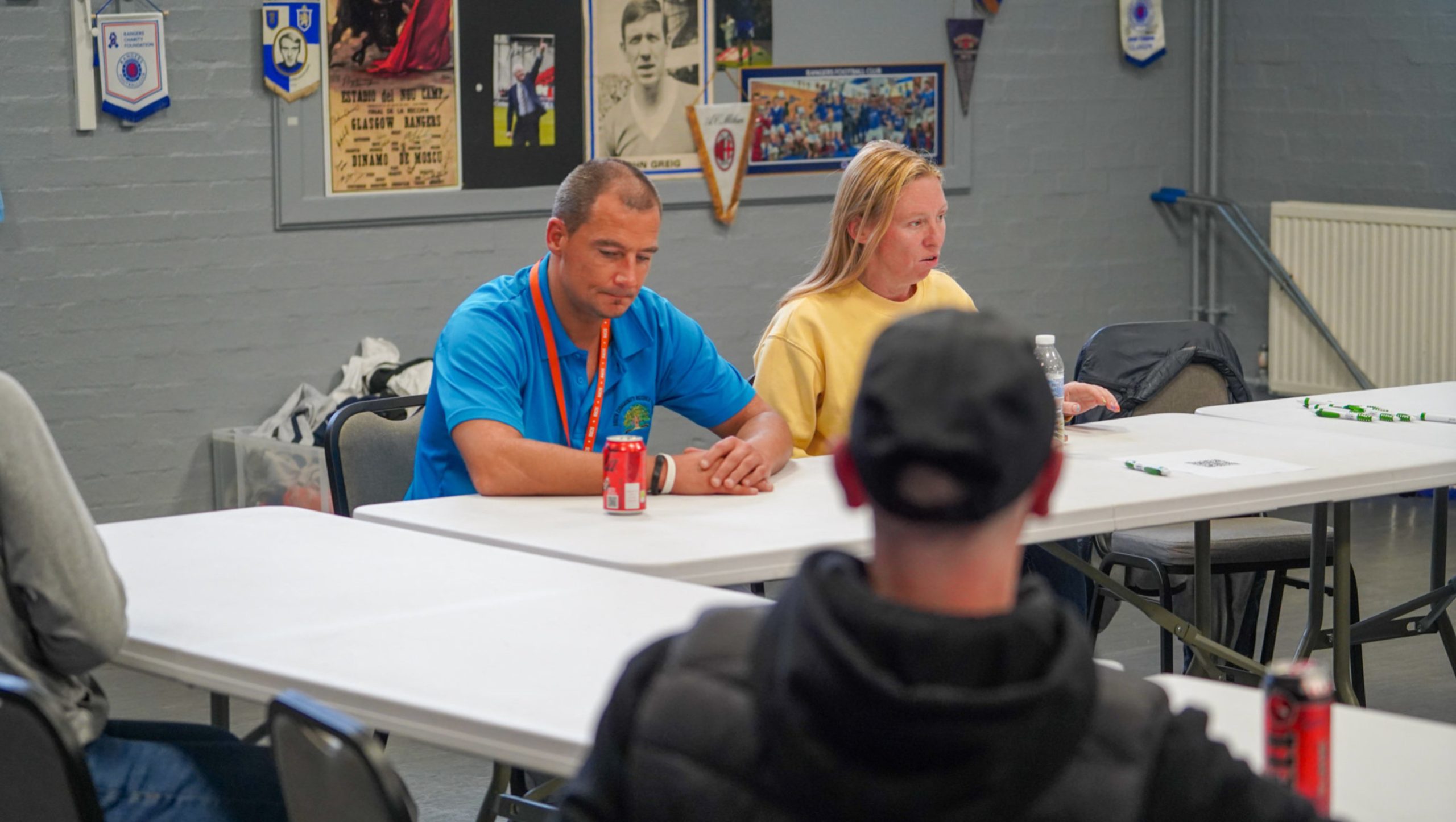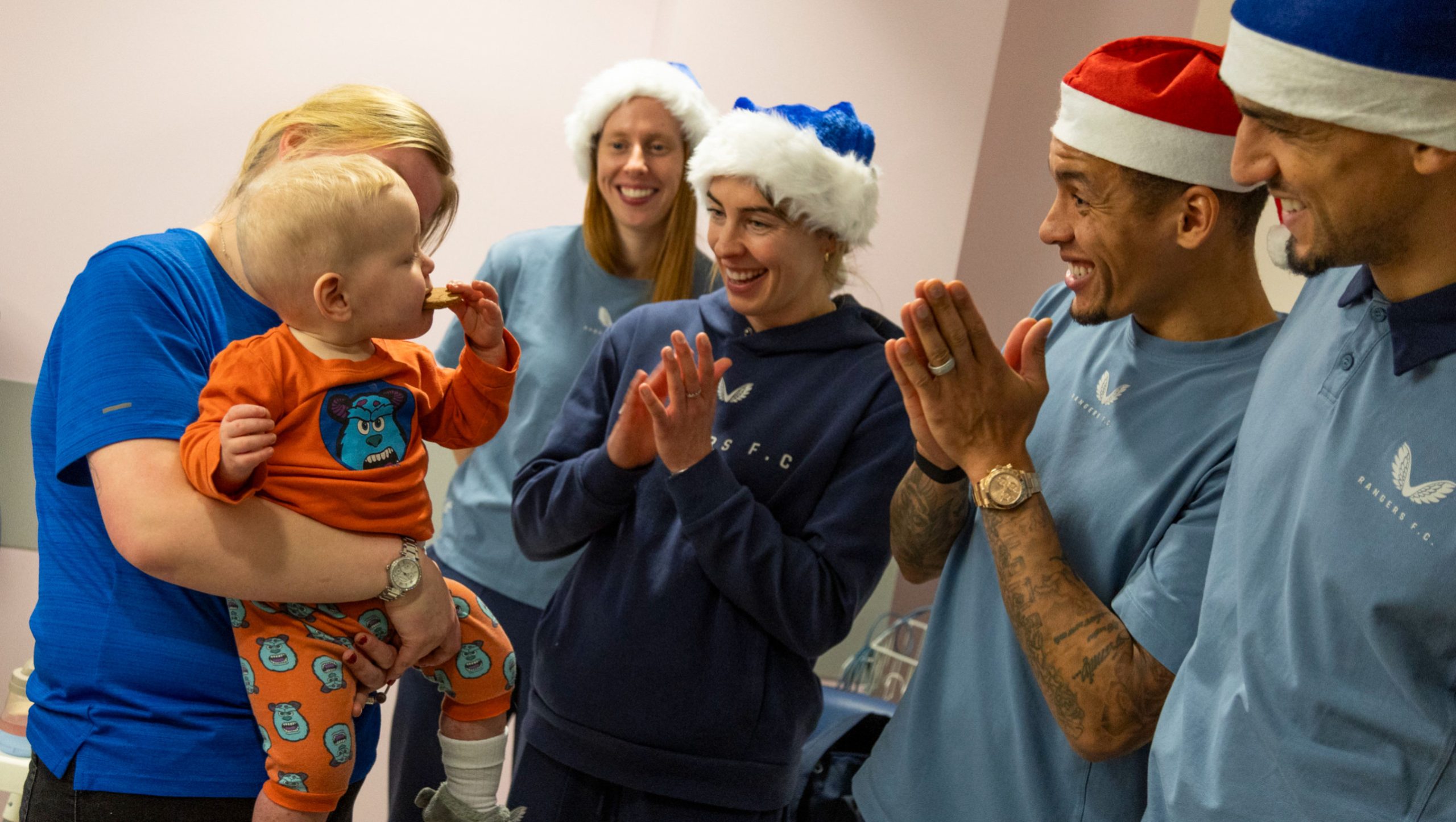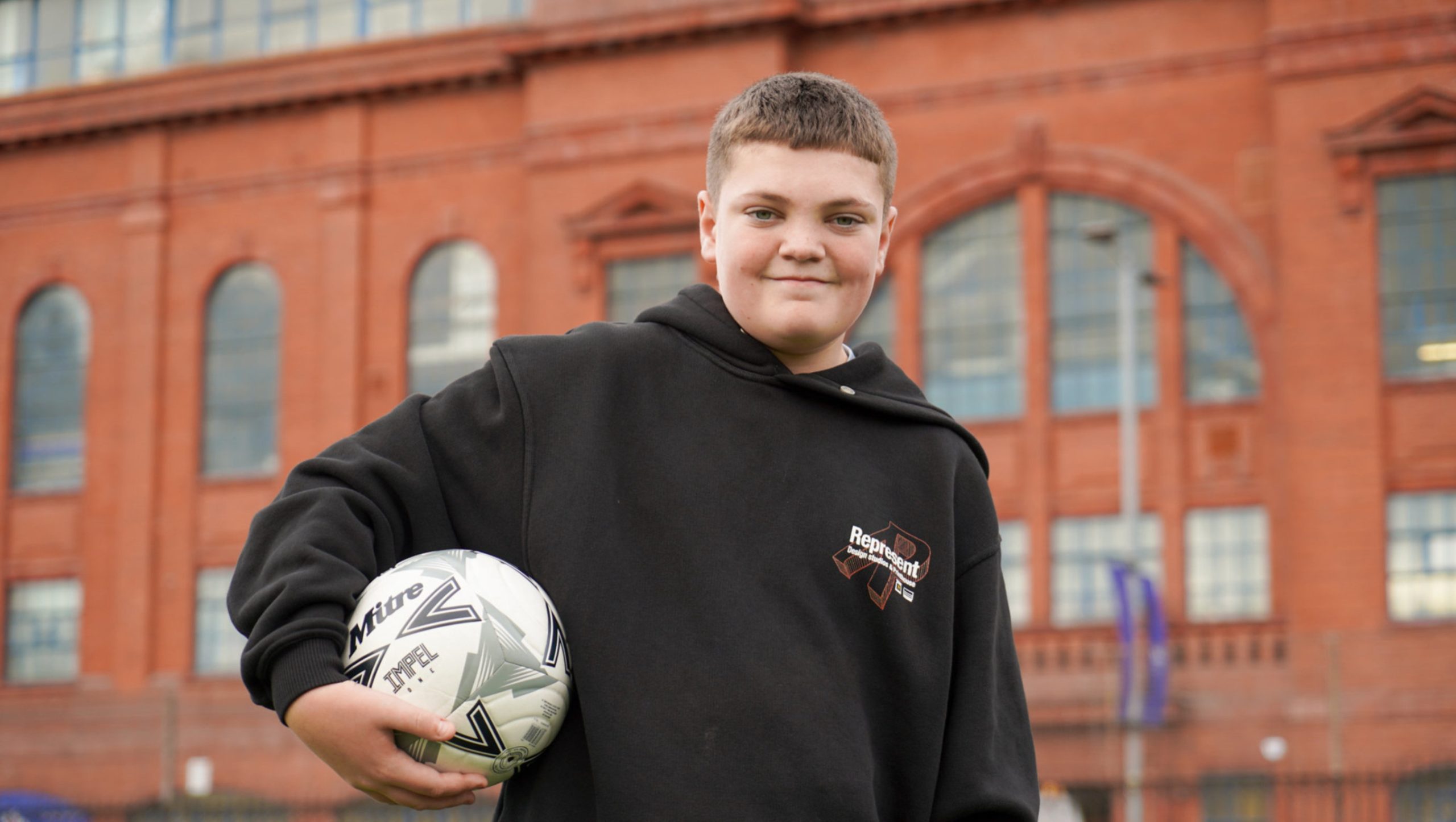News
The Road To Recovery: William’s Journey Through Recovery Drop In
Fri 17th May 2024
William McLaughlin has praised the Foundation’s Recovery Drop In sessions and credited them with guiding him on his journey through recovery.
Our Recovery Drop In sessions, run in partnership with South Community Recovery Network (SCRN), grew from our Recovery With Rangers programme. The sessions provide a safe and friendly place to meet and are free and open to anyone who is recovering from addiction.
William explained how he was introduced to the Foundation’s Recovery sessions and what was going on his life before attending the group.
He said: “Before I came here, I wasn’t doing great at all, and I actually ended up in a crisis centre. I was doing stints in the police station and things like that too. All my money was going on alcohol and other substances.”
“I wasn’t topping up my electricity meter, I wasn’t buying food and I wasn’t looking after myself. I had also sold my washing machine and pawned my TV so all I had was an empty house.”
“When I did get out the crisis centre, by chance and luckily, I was assigned a good alcohol support worker, and they gave me information about what was out there for me.”
“I was 38 and I had never heard of recovery café’s or anything like that, but they put me in contact with SCRN who run the café here and they phoned me and invited me down.”
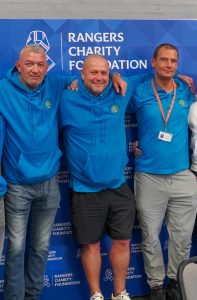 Thanks to funding from the National Lottery Community Fund, the Foundation runs two Recovery Drop In sessions each week, with one taking place on a Monday evening and the other on Wednesday afternoon.
Thanks to funding from the National Lottery Community Fund, the Foundation runs two Recovery Drop In sessions each week, with one taking place on a Monday evening and the other on Wednesday afternoon.
On Mondays, attendees have access to a peer led recovery support group, food, tea and coffee, the internet as well as quizzes and bingo. On Wednesdays, group participants still get access to food, tea and coffee and the support group but also have the opportunity to play a game of football and access our in-house Trauma Counsellor on a needs referral basis.
Armed with information and a determination to change his life for the better, William decided to begin attending the weekly sessions. He explained what his experience was like when he first went along, and how he got to where he is at now.
He said: “Once I had the information and felt confident enough to go, I started attending the recovery cafes.”
“When I started coming here, I realised that I was meeting like-minded people, and they were then helping point me in the right direction.”
“The people here, if they notice or feel that I’m struggling, they’ll be on the phone to me checking in on me, so knowing that I have that support network now is great.”
“I think that people out there really need to change their lifestyle and coming down here to meet like-minded people can really be the spark for that. The support group here helped me start to get things back on track with my life and my house and things.”
“I was able to get a washing machine back and a TV and I could come down to the Recovery Drop In sessions and get fed. I was also able to manage my money a lot better. So, I learned loads of things and this place has been instrumental in getting me to a better place.”
The sessions also allow individuals who feel ready to return or enter employment to work on training and qualifications. William explained how much of a help this has been for him.
He added: “The opportunities that I’ve been given through here as well have been amazing. I’ve been put through training to try and help me get back to work. I used to be a chef and it’s well known that heavy drinking and substance use is widespread in the industry so I can’t see myself going back to that now.”
“So, the training that I’m getting through Recovery Drop In can only be good for me and it’s helped me add to my CV and given me a different outlook on what career path I can go down in the future.”
“I’m now getting help as well with trying to be able to see my kids now which would never have been an option before when I was out there doing the same stuff that I had been doing.”
Recovery Drop In uses a peer support model and while William first attended the group for support, he now uses his time to chair the group meetings to help others. He explained why he wanted to remain involved with the programme.
He said: “I’ve now become a volunteer for SCRN and I’m down here most days because I think that it’s important for people like me and I think that we need to offer support to others the way this place has helped me.”
“Don’t get me wrong, it’s taken me a while to get to this stage and as I said before, if it wasn’t for coming here and being proactive, I’d still be sitting in an empty house in the same situation that I had been in for years.”
“But it’s wonderful to think that I was coming here at first and not being able to look people in the eye but I’m sitting here today chairing the meetings and giving back and that change is through coming here on a Monday and Wednesday.”
“It’s super beneficial for me, keeps me out the house and keeps me busy but most importantly I want to give back to the people that helped me.”
For more information on what’s available at our Recovery Drop In sessions, click HERE.
Thank you to the National Lottery Community Fund for their funding of this project and to South Community Recovery Network for their assistance with weekly delivery of the project.
